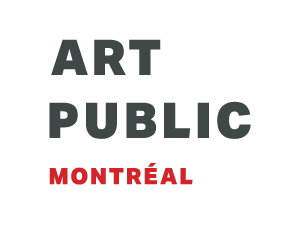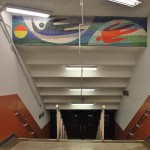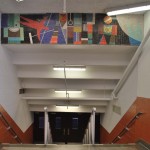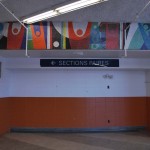
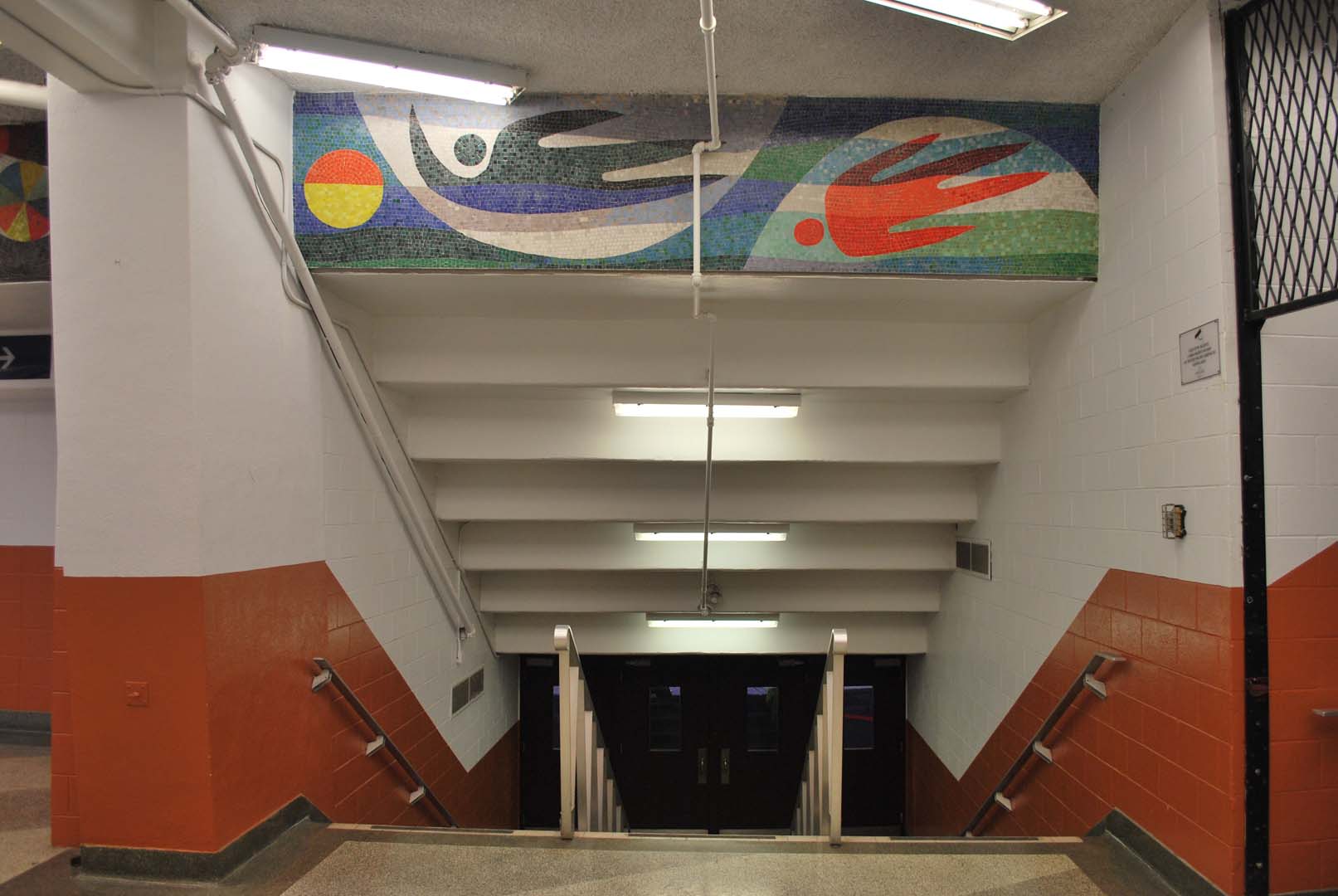
Mario Merola was born in 1931 and attended the École des beaux-arts de Montréal from 1946 to 1952, where he studied decoration with painter Maurice Raymond. In 1952, he went to France to take a set design course at the École supérieure des arts décoratifs de Paris. He then attended the Place des arts encounter workshop, after which he was hired as a costume designer at Radio-Canada. Starting in 1957, Merola produced numerous murals integrated with architecture, including one in the Canadian pavilion at the Brussels World Fair and those in the Sherbrooke and Charlevoix Métro stations, as well as fighting for professional recognition of artists.

Artwork description
Situated at the north entrance to Maurice-Richard Arena, the artwork is above the box office and two sets of stairs leading to the rink. It is composed of mosaics made of broken glass. On each section of the frieze are different sports activities, including swimming, pole-vaulting, hockey, and weightlifting.
The five mosaic friezes are composed of strong lines that structure the pictorial space in a rhythm accentuated by the choice of bright colours. This play of rhythms characterizes the artist’s practice. Although the figurative subject is unusual in Merola’s murals, the style of geometric abstraction refers to his involvement in the development of modern art. During his subsequent art career, he produced abstract murals composed of sculpted geometric modules inscribed in the bas-relief tradition.
